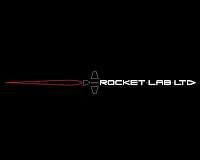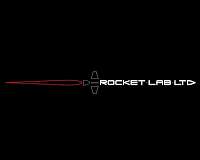Space systems company Rocket Lab has launched its first in-house designed and built operational satellite, cementing the company’s evolution from a launch provider to an end-to-end space solutions company that offers turnkey satellites and spacecraft components, launch, and on-orbit operations.
The satellite, named ‘First Light’, is the first spacecraft from Rocket Lab’s family of configurable Photon satellites to be deployed to orbit. Launched as a technology demonstration, ‘First Light’ builds upon the existing capabilities of the Electron launch vehicle’s Kick Stage with additional subsystems to enable long duration satellite operations.
This pathfinding mission is an initial demonstration of the new power management, thermal control and attitude control subsystem capabilities. By testing these systems for an extended period on orbit, Rocket Lab is building up flight heritage for future Photon satellite missions planned to low Earth orbit, the Moon, and Venus.
‘First Light’ was deployed to orbit on Rocket Lab’s 14th Electron mission, ‘I Can’t Believe It’s Not Optical’, which lifted-off from Rocket Lab Launch Complex 1 in New Zealand on August 31, 2020. Approximately 60 minutes after lift-off, Electron deployed a 100 kg microsatellite for Capella Space, an action that would typically signal the successful completion of a standard Rocket Lab mission.
However, shortly after deploying the customer payload, Rocket Lab conducted an entirely new operation for the first time: Rocket Lab engineers sent a command to transition the Kick Stage into Photon satellite mode. This action marked the first on-orbit demonstration of Rocket Lab’s Photon satellite as a two-in-one spacecraft, first using it to complete its conventional launch vehicle function to deploy customer satellites, then transitioning into a satellite to continue a standalone mission.
“We started with launch and solved it, releasing small satellites from the time and orbit constraints experienced when flying on larger launch vehicles. Now we’ve simplified satellites too,” said Rocket Lab’s founder and CEO, Peter Beck.
“Launching the first Photon mission marks a major turning point for space users – it’s now easier to launch and operate a space mission than it has ever been. When our customers choose a launch-plus-spacecraft mission with Electron and Photon, they immediately eliminate the complexity, risk, and delays associated with having to build their own satellite hardware and procure a separate launch.”
Designed for launch on Electron, as well as other launch vehicles, ‘First Light’ paves the way for future, high-energy variations of Photon designed for lunar and interplanetary missions, including the CAPSTONE mission to the Moon for NASA in early 2021. Lifting off from Launch Complex 2 in Virginia, Rocket Lab will use the Electron rocket and Photon Lunar spacecraft to launch NASA’s Cislunar Autonomous Positioning System Technology Operations and Navigation Experiment (CAPSTONE) CubeSat to Near Rectilinear Halo Orbit (NRHO), the same orbit planned for Artemis.
With the ‘First Light’ mission, Rocket Lab has completed its first full demonstration of its end-to-end mission services, encompassing mission design, component build and spacecraft assembly, integration and test (AIT), launch, ground segment, and on-orbit mission operation. The process of developing the first on-orbit Photon also enabled Rocket Lab to refine and streamline production and testing processes for higher volume Photon production to meet growing customer demand.
Rocket Lab recently opened a new headquarters and manufacturing complex in Long Beach, California, to accommodate streamlined, rapid production of Photons. The facility is also home to payload integration facilities for Photon missions, as well as a state-of-the-art mission operations center. The production complex is already home to extensive production lines delivering more than 130 Rutherford engines for the Electron launch vehicle every year, along with guidance and avionics hardware.
In addition to expanding its manufacturing complex, Rocket Lab recently acquired Sinclair Interplanetary, a leading provider of high-quality, flight-proven satellite hardware, to strengthen the Rocket Lab Space Systems division.
Sinclair Interplanetary products have become key features of the Photon satellite platforms, and Rocket Lab is also dedicating resources to grow Sinclair’s already strong merchant spacecraft components business. The acquisition enables Sinclair Interplanetary to tap into Rocket Lab’s resources, scale, manufacturing capability, and innovative technologies to make world-leading satellite hardware accessible to more customers.
Related Links
Rocket Lab
Microsat News and Nanosat News at SpaceMart.com
|
Thanks for being there; We need your help. The SpaceDaily news network continues to grow but revenues have never been harder to maintain.With the rise of Ad Blockers, and Facebook – our traditional revenue sources via quality network advertising continues to decline. And unlike so many other news sites, we don’t have a paywall – with those annoying usernames and passwords.Our news coverage takes time and effort to publish 365 days a year.If you find our news sites informative and useful then please consider becoming a regular supporter or for now make a one off contribution. |
||
|
SpaceDaily Monthly Supporter $5+ Billed Monthly |
||
paypal only
SpaceDaily Contributor
$5 Billed Once
credit card or paypal
Vega rocket launches from French Guiana
Kourou (AFP) Sept 3, 2020
Europe’s Vega rocket returned to the skies on Wednesday from French Guiana in its first mission since a failed launch last year.
The rocket left Earth around an hour before midnight local time after the launch was postponed numerous times, most recently due to a typhoon passing over a tracking station in South Korea.
The coronavirus pandemic and persistent winds over the South American launch site also caused delays.
Vega successfully deployed 53 small satellites – most weighing less than 1 … read more
– Advertisement –


